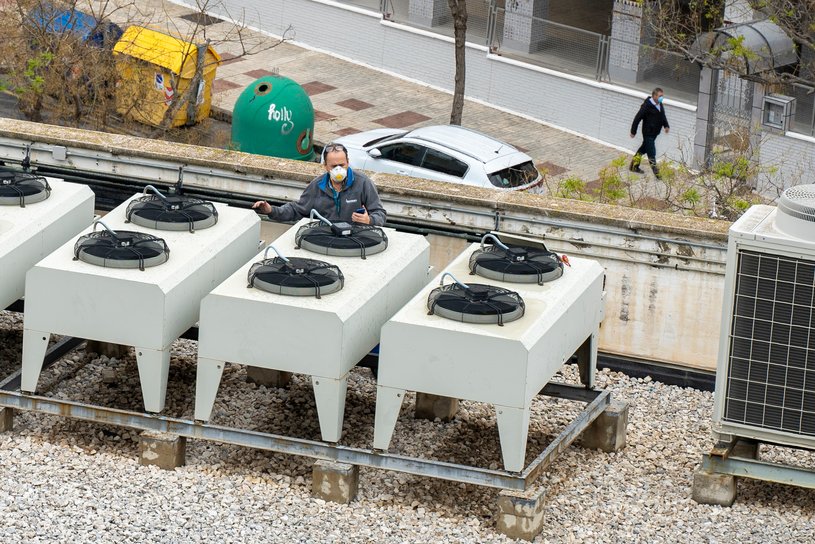RACHP craftsmen and women do essential work. They ensure, for example, that medicines and vaccines are produced, transported and stored refrigerated.
They also provide refrigeration and air conditioning for medical purposes, hospitals, pharmaceutical processes and the cooling of data centres. Although their work is often not visible, they are active in many areas that not only make our lives pleasant, but also safe and healthy. But what can RACHP workers do to keep themselves healthy in times of Covid-19? While many other employees are currently working from home, RACHP craftsmen and women cannot simply switch to the home office. Close contact between them and their customers is often inevitable during their work. More than ever, craftsmen and women must take care to protect themselves.
In addition to basic protective measures (e.g. minimum distance from other people, no shaking hands, coughing/sneezing in the crook of your arm, regular hand washing, not touching your face) the following measures are recommended:
- Employees who show respiratory tract infections or fever should stay away from work.
- Organize work and break times in a manner that a minimum distance between the employees (at least 1.5 meters) can be maintained, e.g. by allowing breaks outdoors or relay work and break times.
- Avoid changes of personnel within the teams to avoid additional personal contacts.
- Before making appointments, check whether there is an infected person on site (for example, when servicing an air conditioning system in a household). If so, a work order is only justified after consultation with the responsible health authority and in emergencies.
- For the way to the customer preferably use individual transport, if possible single trips. In the case of collective journeys with company vehicles, the number of people in the vehicle should be reduced if possible, by using private vehicles in parallel.
- Use your breathing mask (as already recommended for brazing and air-polluting works) also for contact with others.
- Ventilate work areas regularly.
- Countersigning of documents, e.g. time sheets, or director's reports by the client should be avoided. Electronic work-reports check-out should be preferred.
- Even though soap and towels are available on site in most cases, it may be useful to carry clean paper towels and soap. If washing facilities are not available, bringing along hand disinfectants is an alternative.

